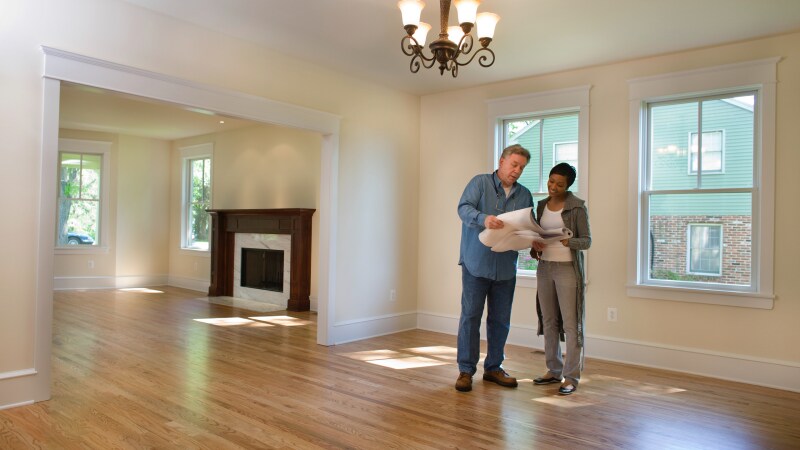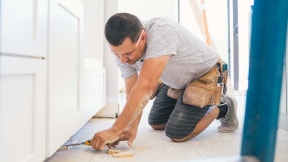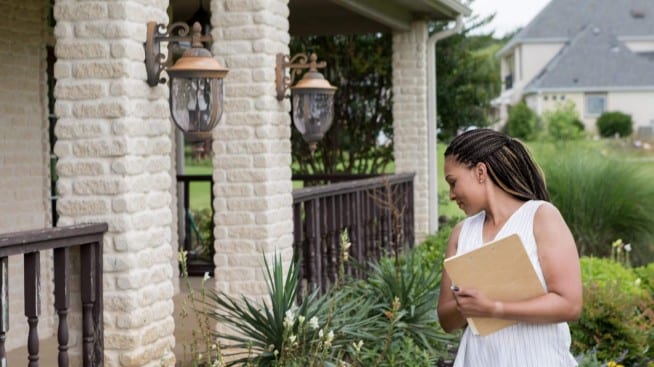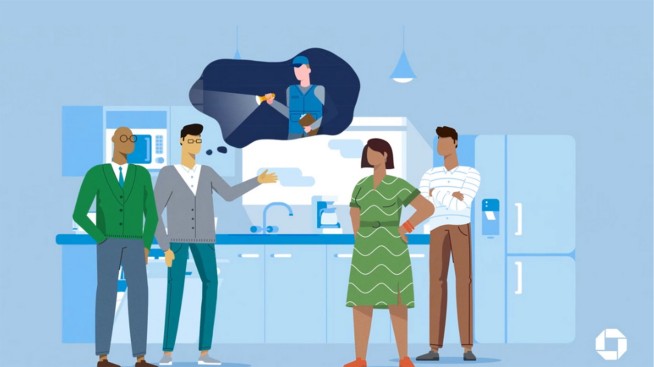Home inspections: all the costs you need to know

When you're choosing a home, it’s important to have a professional home inspection (PDF) completed as quickly as possible. The standard is for new owners to have their home inspected within 14 days of going into contract. It may be tempting to skip this step and reduce closing costs. But a professional inspection can expose issues that may cost you more in the future.
A home inspection can also help you make an informed decision about the value of the home and negotiate your offer. With this in mind, try to budget for the cost of the inspection as well as any additional costs that may arise from the process.
How much does a home inspection cost?
Home inspections typically cost a few hundred dollars. That can be a lot when you’re saving every penny to buy a home. But keep in mind, a home inspection could save you thousands in unexpected repairs. A thorough home inspection should include:
- Structural integrity and construction
- Plumbing and electrical systems
- Kitchen and bathroom, including appliances
- HVAC equipment
- Ventilation and drainage
- Exterior features such as walkways, driveways, outbuildings, pools and landscaping
- Any other elements that may affect the value of the property
Factors that affect home inspection costs
The cost of inspection varies depending on the inspector. Try to compare several quotes before making your decision. The cost of home inspections is typically based on a few important factors, including:
- The location of the home
- The age of the home
- Square footage of the property
- What parts of the property you wish to have inspected
- Experience of the inspector
Home location
If your new home is located in an area with higher home prices and cost of living, you can expect the inspection cost to be higher. In addition, your inspector will likely factor travel time into their price. So expect to pay a higher rate if you’re in a remote or difficult to access location.
Age of the home
Older homes take longer to inspect than new homes. They can have rooms and crawl spaces that are more difficult to access and inspect thoroughly. In addition, they often have unique features that require extra time and effort on the part of the inspector.
Size of the property
A larger home will likely be more expensive to inspect than a smaller one since it will take longer to complete a thorough review. Although size should be taken into consideration when determining the price of inspection, your inspector should be thorough regardless.
Inspection parameters
If your home has additional features or unusual configurations, the price of the inspection may increase. You can also expect to pay more if you have unique features like outbuildings, a pool or spa or specialized irrigation.
Inspectors with experience
You may be quoted a higher price from more experienced inspectors. Keep in mind that cheaper is not always better. Be sure to thoroughly research your options, and select an inspector who has knowledge and experience. Paying a higher rate for a thorough inspection could help save you a great deal in repairs down the line.
Additional home inspection costs
Home inspectors typically focus on structural integrity and critical systems. Non-standard issues such as pest control, hazardous materials and sewer systems require specialized inspections. Depending on the age and area in which the home is located, it may be wise to consider additional inspections for the following:
Pest control
Termites can cause irreparable damage to the structure of a home. Unfortunately, they are often undetectable until the damage has been done. Rodents, bats and other insects can also cause health and safety issues if not addressed quickly.
Some standard home inspectors will include pest control. If yours doesn’t, it may be wise to invest in a pest control professional. Some companies will offer a free initial inspection, and the cost will vary depending on the area and the size of the home.
Asbestos
Asbestos is relatively common in older homes and can result in a variety of health issues. Unfortunately, asbestos is not always easy to identify in a visual inspection. If you suspect the home may have asbestos, contact a professional before you finalize your purchase. Some home inspectors may add asbestos testing for an additional fee. However, if you hire an asbestos specialist, and the cost will vary depending on the size and location of the home.
Radon
Radon is a colorless, odorless, radioactive gas that naturally occurs in some areas. Prolonged exposure can cause serious health issues, so it’s important to test for it if you’re in an area where exposure is possible. While you can buy a budget-friendly home testing kit, professional testing is more accurate.
Mold
Mold is an issue that occurs mostly in moist, dark environments. Prolonged exposure to certain molds can cause itchy eyes, sinus infections and long term respiratory issues. If you suspect mold may be an issue, hire an expert to perform an inspection. The costs for mold inspections varies widely depending on the location and size of your home.
Lead
Lead is extremely common in homes built before 1978 and can cause a variety of severe health issues. If you’re interested in purchasing an older home, it may be wise to consider a lead inspection. You can expect to pay a few hundred dollars for a certified professional. Sellers are required to provide buyers with a lead-based paint disclosure, including details of any known issues, for any home built prior to 1978.
Cost of repairs
Besides ensuring a home is thoroughly inspected for potential hazards and damage, be sure to budget for the cost of repairs. While you could negotiate for the seller to complete repairs before closing, it may be easier and less expensive to have the repairs done yourself. Some of the most common repairs new homeowners have to contend with include:
- Windows and doors
- Roofing and gutters
- Foundation and structural
- Mold remediation
- Plumbing
- Electrical and HVAC equipment
- Flooring
Ways to reduce inspection costs
Inspection costs, especially for special circumstances, can appear overwhelming at first. However, investing in thorough inspections now can save you thousands in repairs, replacement and potential medical costs later. Here are ways to reduce inspection costs.
- Bundle your costs. Ask your home inspector if they include specialty inspection services. Even if not standard, they may be able to add the service for less than the cost of hiring a separate inspector. You’ll also save time by having both services performed at once.
- Compare pricing. If you must hire a separate inspector, get multiple quotes so you have a good idea of the standard service price for your area.
- Get what you pay for. Cheaper is not always better. Some inspection companies may be less expensive, but not be as thorough.
- Research your inspector. Ensure they have appropriate certifications and sufficient experience for your needs.
- Don't be afraid to negotiate. Feel free to ask hard questions about the services offered. If you’re uncomfortable or unsure about inspection services, consult a professional home lending expert.
Seek professional advice
If you feel like you’re in over your head, contact a professional to help you navigate the ins and outs of home inspections. Our Home Lending Advisors are here to help you manage your homebuying budget, from closing costs to inspections. Contact us today to learn how we can help make your home inspection process easier and more cost effective.



